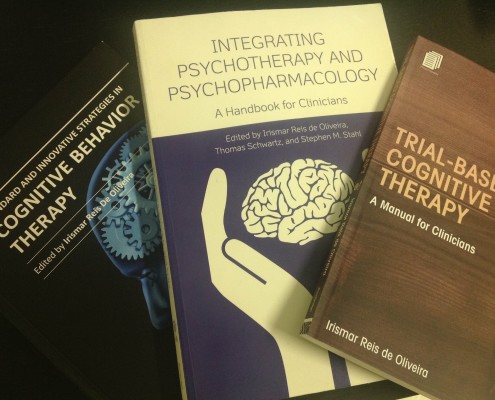Trial-Based Cognitive Therapy (TBCT) is a three-level, three-phase, case formulation approach developed by Dr. Irismar Reis De Oliveira at the Federal University of Bahia, Brazil in 2011. TBCT’s foundation is in Cognitive-Behavior Therapy (CBT).
Like standard CBT, TBCT is an active approach to treatment that helps clients to recognize situationally based thoughts and unhelpful beliefs that exacerbate emotional distress. One of the main goals of both approaches is to help clients modify the so-called core beliefs (CBs) which are those global, rigid, and over-generalized perceptions about themselves, and accepted as absolutely true to the point that they do not question them. However, TBCT has a unique approach to conceptualization and techniques that make it a distinct intervention in modifying clients’ CBs.
- One of the main techniques used in TBCT is the Trial-Based Thought Record (TBTR or Trial I), a structured strategy that is presented as an analogy with Law, in which the therapist engages the client in a simulation of the judicial process. Inspiration for this technique came from the surreal novel by Franz Kafka, The Trial; in the book, the character Joseph K., for reasons never revealed, is arrested and ultimately convicted without even knowing the crime of which he was accused. The TBCT therapist uses a creative and stimulating process to make clients aware of their core beliefs about themselves (self-accusations) and, differently from Joseph K’s process, engages them in a constructive trial to develop more positive and functional beliefs.
- According to Professor de Oliveira, “TBCT has a great chance of success in USA, because of its step-by-step nature, the easy-to-learn case conceptualization, the judicial-like nature of the approach, and (above all) that it is 100% Beck’s cognitive therapy, applied in a more organized and metaphoric fashion. TBCT is easier to be learned by the therapist, easier to be understood by the patient, and seems to be as effective as (or, in more aspects, more than) conventional CBT.”
Meet the Faculty
We are a team of dedicated professionals, ready to do what ever it takes to help you help your patients

Irismar Reis de Oliveira
Developer of Trial-Based Cognitive Therapy, Irismar is present during the whole TBCT training and presents most of the topics during the course.

Donna Sudak
Donna may present any of the topics during the training and is available for extra-class supervision.

Noah Clyman
Noah may present any of the topics during the training and is available for extra-class supervision.

Scott Kellogg
Scott provides a 1-hour lecture and a 1-hour demonstration of the Chairwork (empty chair) approach in the New York training.
Our Mission
Primary purpose or mission of the organization:
Teach and disseminate Trial-Based Cognitive Therapy, providing the highest quality education and training to mental health professionals
Secondary purpose or mission of the organization:
Disseminate Cognitive-Behavior Therapy by increasing the number of therapists eligible to become certified diplomates by the Academy of Cognitive Therapy.
TBCT Techniques
1st level (to change automatic thoughts)
- Cognitive Distortions Questionnaire (CD-Quest)
- Intra-personal Thought Record (Intra-TR)
- Interpersonal Thought Record (Inter-TR)
- Participation Grid (PG)
2nd level (to change underlying assumptions)
- Behavioral experiments facilitated by color-coded symptoms hierarchy (CCSH)
- Consensual role-play (CRP)
3rd level (to change core beliefs)
- Trial-Based Thought Record (Trial I)
- Trial-Based Metacognitive Awareness (Trial II)
- Sailboat Metaphor

